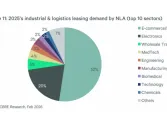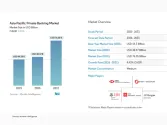The most significant tax reform in China
By Eric MayerThe new Individual Income Tax Law, which came into force in China on 1st January 2019 (“New Tax Law”), is a strong response to the strong criticism and social discontent under the previous legislation.
The New Tax Law will not only bring great satisfaction to the entire population of mainland China, but it will also benefit foreigners greatly. Legally speaking this new legislation brings certainty as for the first-time tax residency is defined, and economically speaking it is favorable to all: both the mainland Chinese and foreigners.
MAINLAND CHINESE vs. FOREIGNERS
Mainland Chinese citizens and foreigners are treated differently because the former are all deemed to reside in China for one single reason: the “hukou” which is a compulsory registration system of all Chinese citizens which gives them benefits and rights in the geographical area to which the hukou is connected. The hukou makes them all domiciled in and tax residents of China. Set up in 1958 under Mao Zedong, the hukou is essential to all Chinese citizens, and to be able to cease to have their tax domicile in China, Chinese citizens need to renounce to all the rights and privileges attached to their hukou before leaving the country for good.
A CLEAR DEFINITION OF TAX RESIDENCY
The definition of tax residency consequently concerns mainly foreigners, which benefit from a clear legal definition as follows:
• To be a tax non-resident of China, an individual must comply with the following two requirements:
o not to have a domicile in China, and
o stay less than 183 days in China.
• To be a tax resident of China, an individual needs to meet either one of the following two criteria:
o to have a domicile in China, or
o to stay more than 183 days in China.
All Chinese citizens holding a Hukou will be considered as domiciled in China. Foreigners will be considered as domiciled in China if they reside habitually there for family or economic reasons.
The number of days in China is calculated by reference to a civil year as the tax year in China is from 1st January to 31st December, unlike Hong Kong. Days spent outside of China in a particular year are deductible only under the following circumstances: a stay of less than 30 consecutive days outside of China will not be counted unless the total number of days spent out of China is more than 90 overall.
NON RESIDENTS MAY AVOID TAXES
Non-residents need to pay taxes only on China-sourced income. They can, however, avoid having to pay taxes at all if their China-sourced income meets the following three requirements:
• It corresponds to a remuneration paid by a foreign entity;
• the non-resident individual receiving the remuneration spends less than 90 days in China (extended to 183 days for residents of Hong Kong and of other territories having concluded a Double Taxation Agreement, as applicable); and
• the remuneration is borne by a foreign entity which does not have a permanent establishment in China.
FOREIGNERS CAN ENJOY UNTAXED OFFSHORE INCOME
The principle is that tax residents must pay taxes on their worldwide income, but the following “6-years rule” makes it practically easy for foreigners to avoid paying taxes on their offshore income (non-China sourced income):
• individuals who are tax residents in China and do not leave the country for 30 consecutive days (or stay less than 183 days) during 6 consecutive calendar years will be taxed on their offshore income from the seventh year;
• conversely, a tax resident of China who is out of China during 30 consecutive days or more (or stays less than 183 days in China) during any calendar year will interrupt this 6-years period, which will start running again from scratch the following year, and his offshore income will not be taxed in China.
In other words, to avoid having to pay taxes on offshore income, a tax resident of China needs to make sure he is not in China for 30 consecutive days or less than 183 at least every five years.
Other key points of the New Tax Law include:
• a smaller number of income categories (copyright income and royalties are assimilated with salaries and wages);
• widening of the lowest tax bands;
• many new possible deductible expenses, especially for Chinese citizens who couldn’t deduct family charges under the previous legislation;
• new strict tax filing requirements, including withholding obligations;
• new anti-avoidance rules for individuals; and
• establishment of an information exchange system between different government agencies.
To conclude, the New Tax Law will satisfy greatly both Chinese citizens and foreigners.
With the widening of the lowest tax bands in great proportions and by introducing a great number of deductible expenses concerning mainly family costs, the New Tax Law will satisfy the entire population of China that will be happy to pay much lower taxes.
The most innovative and interesting part of the New Tax Law is however how its new tax residency definition combined with its 6-years rule renders China as attractive as Hong Kong for foreigners wishing to have the possibility of enjoying tax-free offshore income. It seems the territory may have inspired the drafters of the law, thus bringing closer the two systems…



















 Advertise
Advertise






